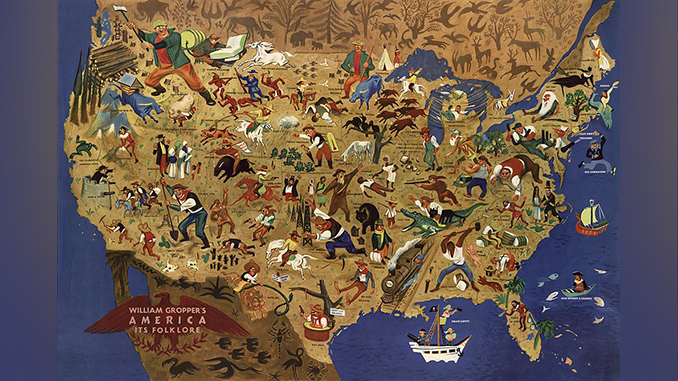
Guest Editorial by: Thomas
Many of us have witnessed various ethnic groups in the United States showcasing their cultural traditions whether at an ethnic festival or through mainstream American venues. Many of us for instance, enjoy American country music and dance ensembles. My own culture of origin prides itself in folklore.
What is folklore and is it a component of the American Ethos? The term was first coined by English scholar and antiquarian William Thoms: folk – lore, the traditional beliefs, legends, customs of a people. Such are disseminated in an informal manner but in modern times it has taken a formal focus through formations of organizations, groups and societies dedicated solely to the preservation of regional and national folklore. Music, dance, dress, myths and traditions form the body of the American folklore.
Many American pioneers were instrumental in establishing folklore as an integral component of the American Ethos. Among those were Paul Bunyan, John Henry, Sally Ann Crockett, Davy Crockett and Geronimo.
The question to you, the reader, is this: how has American folklore affected your development as an American and through which of its many mediums?
